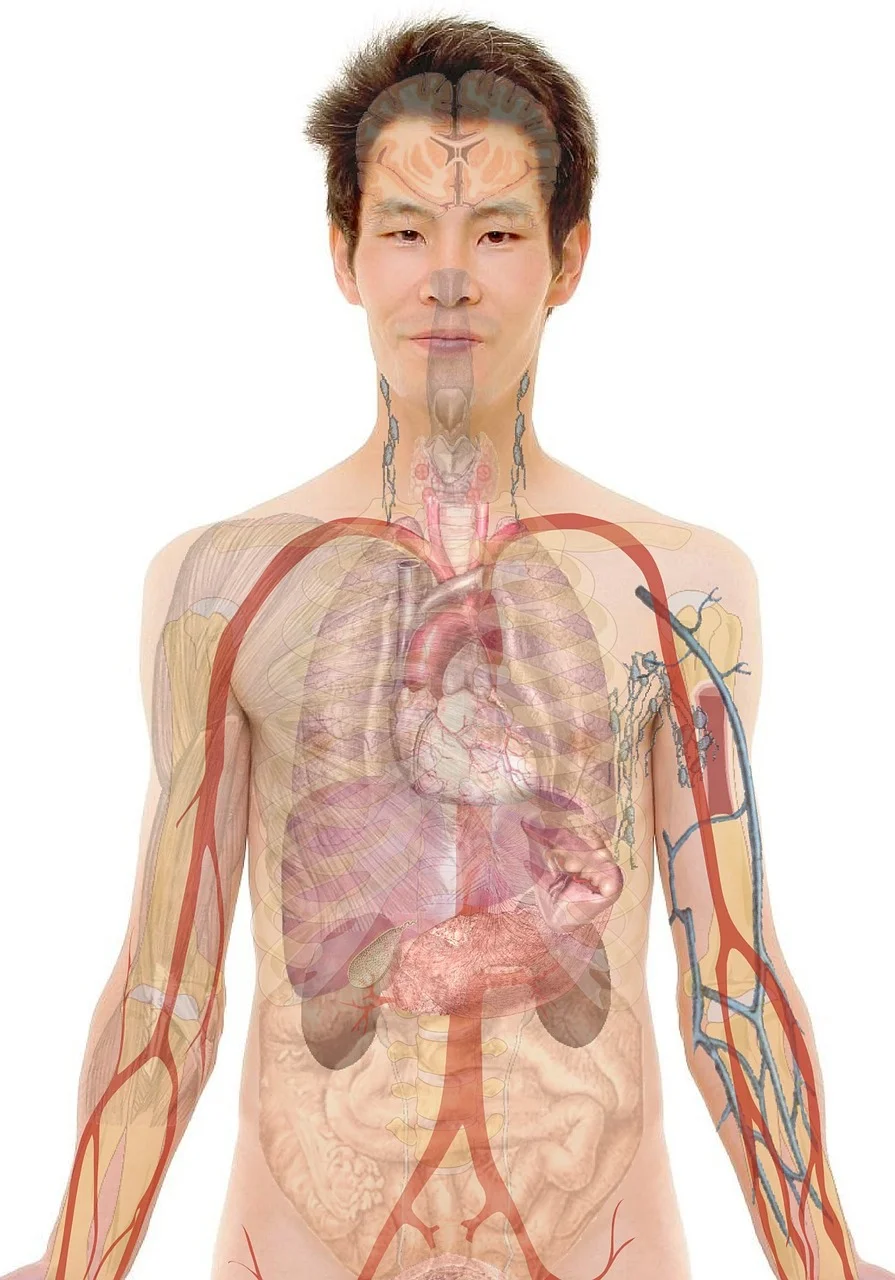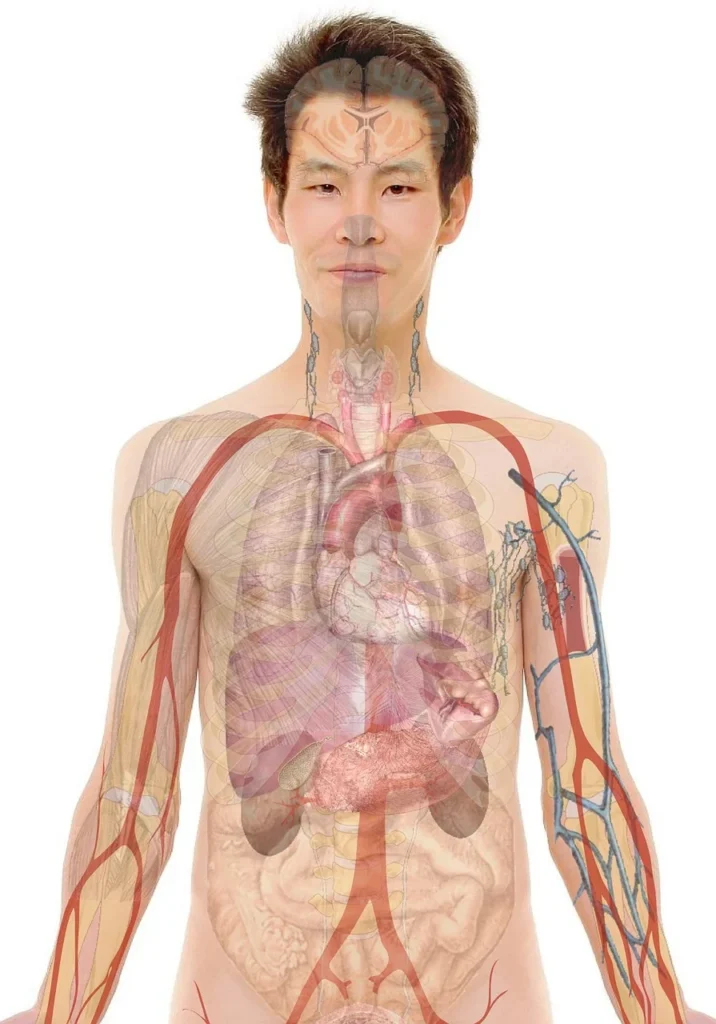Acidity in the body is a condition characterized by an imbalance in the pH levels, where the body becomes more acidic than alkaline. This imbalance can lead to a range of symptoms and health complications. When the pH level becomes too acidic, it can disrupt various bodily functions, affecting digestion, immunity, and overall well-being. Symptoms of acidity in the body can include heartburn, acid reflux, indigestion, nausea, fatigue, joint pain, and skin issues, among others. Understanding these symptoms is crucial for identifying and addressing acidity in order to restore the body’s optimal pH balance and promote better health.
In this article, we will explore the causes, symptoms, effects, and remedies for acidity in the body.
 What is Acidity in the Body?
What is Acidity in the Body?
Acidity in the body refers to an imbalance in the pH level, where the body becomes more acidic than alkaline. The pH scale ranges from 0 to 14, with 0 being highly acidic, 14 being highly alkaline, and 7 being neutral. The human body requires a slightly alkaline environment to function optimally. When the pH level becomes too acidic, it can disrupt various bodily functions and lead to health issues.
Causes of Acidity
There are several factors that can contribute to acidity in the body. Some common causes include:
- Unhealthy Diet: Consuming a diet high in processed foods, sugar, refined grains, and acidic beverages can increase the acidity in the body.
- Stress: Chronic stress can disrupt the body’s pH balance and contribute to acidity.
- Lack of Physical Activity: Insufficient exercise and a sedentary lifestyle can lead to acidity.
- Dehydration: Not drinking enough water can cause the body to become acidic.
- Medications: Certain medications like nonsteroidal anti-inflammatory drugs (NSAIDs) and antibiotics can trigger acidity.
- Digestive Disorders: Conditions like acid reflux, GERD, and gastritis can increase acidity levels.
Symptoms of Acidity in the Body
When the body becomes acidic, it may exhibit various symptoms. Some common symptoms of acidity include:
- Heartburn: A burning sensation in the chest or throat.
- Acid Reflux: Regurgitation of stomach acid into the esophagus.
- Indigestion: Feeling bloated, gassy, or experiencing discomfort after meals.
- Nausea and Vomiting: Feeling queasy or vomiting.
- Bad Breath: Persistent foul breath even after oral hygiene practices.
- Fatigue: Feeling tired or lacking energy.
- Joint Pain: Acidic conditions can contribute to inflammation and joint discomfort.
- Skin Issues: Acidity can manifest as skin problems like acne, eczema, or dryness.
- Dental Problems: Acidic pH can damage tooth enamel and contribute to tooth decay.
- Mood Swings: Acidic imbalances may affect mood stability.
You may also like.20 Natural signs your body is too acidic How do You Stop Indigestion? 10 Best Home Remedies 6 Best Foods that keep GERD at bay
Effects of Acidity on Health
Persistent acidity in the body can have detrimental effects on overall health. Some potential consequences include:
- Increased Inflammation: Acidity can contribute to chronic inflammation, which is linked to various diseases.
- Weakened Immune System: Imbalanced pH levels can impair the immune system’s ability to defend against infections and diseases.
- Mineral Imbalance: Acidic conditions can deplete essential minerals like calcium, magnesium, and potassium from the body.
- Digestive Issues: Acidity can disrupt the digestive process and lead to conditions like GERD, ulcers, and irritable bowel syndrome.
- Bone Health: Acidic pH can affect bone density and increase the risk of osteoporosis.
- Hormonal Imbalances: Imbalanced acidity levels can disrupt hormone regulation in the body.
How to Alkalize the Body
Maintaining a slightly alkaline pH in the body is crucial for overall well-being. Here are some ways to alkalize the body:
- Drink Sufficient Water: Stay hydrated by drinking at least 8 glasses of water daily.
- Eat Alkaline Foods: Include alkaline-rich foods like leafy greens, fruits, vegetables, and legumes in your diet.
- Reduce Acidic Foods: Limit the consumption of processed foods, sugary snacks, caffeine, and alcohol.
- Lemon Water: Start your day with a glass of warm lemon water to alkalize the body.
- Exercise Regularly: Engage in physical activities to promote circulation and detoxification.
- Stress Management: Practice stress-reducing techniques like meditation, yoga, or deep breathing exercises.
Natural Remedies for Acidity
In addition to lifestyle changes, certain natural remedies can help alleviate acidity symptoms. Here are some effective remedies:
- Aloe Vera Juice: Consuming aloe vera juice can soothe the digestive system and reduce acidity.
- Ginger: Ginger has anti-inflammatory properties and can aid digestion. Drink ginger tea or include it in your meals.
- Apple Cider Vinegar: Dilute apple cider vinegar in water and consume it before meals to improve digestion and reduce acidity.
- Slippery Elm: Slippery elm can coat the stomach lining and provide relief from acidity. It is available in the form of capsules or powder.
- Baking Soda: Mixing a teaspoon of baking soda in water and consuming it can neutralize excess stomach acid temporarily.
Diet and Lifestyle Changes
To manage acidity, it’s essential to make necessary dietary and lifestyle modifications. Consider the following tips:
- Eat smaller, frequent meals to prevent overloading the stomach.
- Chew food thoroughly and eat slowly to aid digestion.
- Avoid lying down immediately after meals.
- Maintain a healthy weight to reduce pressure on the stomach.
- Quit smoking and limit alcohol consumption.
- Manage portion sizes and avoid overeating.
Foods to Avoid
To reduce acidity levels, it’s important to limit or avoid certain foods that can increase acid production or irritate the digestive system. These include:
- Spicy foods and hot peppers
- Citrus fruits and juices
- Tomatoes and tomato-based products
- Carbonated beverages
- Fried and fatty foods
- Processed and packaged snacks
- High-fat dairy products
- Caffeinated beverages
Foods to Include
To promote alkalinity and reduce acidity, incorporate the following foods into your diet:
- Leafy greens like kale, spinach, and Swiss chard
- Fresh fruits, especially bananas, melons, and berries
- Non-acidic vegetables like cucumbers, broccoli, and zucchini
- Whole grains like quinoa, brown rice, and oats
- Healthy fats from sources like avocado, olive oil, and nuts
- Plant-based proteins such as beans, lentils, and tofu
- Herbal teas like chamomile, peppermint, or green tea
Herbal Supplements for Acidity
Certain herbal supplements can aid in balancing acidity levels and promoting digestive health. Consult a healthcare professional before starting any new supplements. Some beneficial herbs include:
- Licorice Root: Helps soothe the digestive tract and reduce acid production.
- Marshmallow Root: Forms a protective layer in the stomach, reducing acid-related discomfort.
- Chamomile: Has anti-inflammatory properties and can alleviate digestive symptoms.
- Slippery Elm Bark: Forms a gel-like substance when mixed with water and soothes the digestive system.
Managing Stress and Acidity
Stress can contribute to acidity in the body. Here are some strategies to manage stress:
- Practice relaxation techniques like deep breathing, meditation, or yoga.
- Engage in regular physical activity to reduce stress levels.
- Get sufficient sleep and prioritize self-care.
- Seek support from friends, family, or a therapist.
- Set realistic goals and prioritize tasks to avoid excessive stress.
When to Seek Medical Help
While minor acidity symptoms can often be managed with lifestyle changes, medical intervention may be necessary in certain cases. Consult a healthcare professional if:
- Acid reflux symptoms persist despite lifestyle modifications.
- You experience severe or chronic heartburn.
- Swallowing difficulties or chest pain accompany acidity symptoms.
- You notice blood in vomit or black, tarry stools.
- Weight loss or appetite loss accompanies acidity symptoms.
- Symptoms interfere with daily activities and quality of life.
Conclusion
Acidity in the body can cause various uncomfortable symptoms and potentially impact overall health. By adopting a balanced diet, making lifestyle changes, and incorporating natural remedies, it’s possible to manage acidity and promote a more alkaline environment in the body. Remember to consult a healthcare professional for personalized advice based on your specific situation.
Disclaimer: The information provided in this article is for educational purposes only and should not be considered as a substitute for professional medical advice, diagnosis, or treatment. Always seek the advice of your physician or qualified healthcare provider with any questions you may have regarding a medical condition.
FAQs
Can acidity in the body lead to weight gain?
Acidity itself may not directly cause weight gain. However, an imbalanced pH level can contribute to inflammation, hormonal disruptions, and digestive issues that may indirectly affect weight management.
Is acidity in the body the same as acid reflux?
Acid reflux is one symptom of acidity in the body. It occurs when stomach acid flows back into the esophagus, causing a burning sensation. Acidity refers to the overall imbalance of pH levels in the body.
Can stress contribute to acidity in the body?
Yes, chronic stress can disrupt the body's pH balance and contribute to acidity. Stress management techniques like meditation, exercise, and relaxation can help alleviate acidity symptoms.
Are there any long-term complications of chronic acidity?
Prolonged acidity in the body can lead to various complications such as chronic inflammation, weakened immune system, mineral imbalances, digestive disorders, and bone health issues.
Can herbal supplements effectively reduce acidity?
Some herbal supplements like licorice root, marshmallow root, chamomile, and slippery elm bark have properties that can help reduce acidity and promote a healthier digestive system. Consult a healthcare professional before starting any supplements.
Should I seek medical help for acidity symptoms?
While lifestyle changes and natural remedies can often manage acidity symptoms, it's advisable to seek medical help if symptoms persist, worsen, or interfere with your daily life. Medical professionals can provide appropriate guidance and treatment options.


 What is Acidity in the Body?
What is Acidity in the Body?

